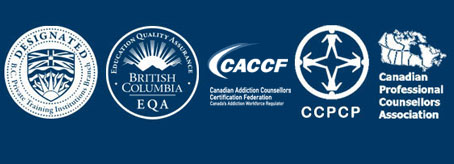Advanced Skill Development/Final Project (ELECTIVE)

ASD-400 Advanced Skill Development/Final Project
This course in a nutshell:
The purpose of the Advanced Skill Development/Final Project is to allow students to work in a mentored position while demonstrating their abilities to apply concepts, theories, and skills to counselling-related situations. As part of this on-the-job experience, students will research and develop a project which has practical application to the work setting. In order to enroll in this course, students must first organize a mentored position in one of the following:
--Administrative Assistant- administrative experience in a counselling-related agency or business.
--Counselling Assistant- job shadowing a professional counsellor.
--Course Facilitation Assistant to an instructor in a counselling-related education program.
Course Objective :
Professional counsellors are expected to maintain a skill level which reflects the changing needs of today’s marketplace. Due to limited resources, community agencies and private contractors are concerned with maximizing fiscal expenditures by hiring counsellors who, in addition to meeting standards of professional competency, also possess specialized skills in networking, fund raising, administration, human resources, facilitating group counseling and psycho-educational programs.
The purpose of the Advanced Skill Development/Final Project is to allow students to work in a mentored position while demonstrating their abilities to apply concepts, theories, and skills to counselling-related situations. As part of this on-the-job experience, students will research and develop a project which has practical application to the work setting.
Course Content
Students may choose either the Advanced Skill Development/Final Project or the Applied Thesis/Final Project, or one of the listed electives as their final course in the Diploma of Applied Psychology and Counselling program.
In the Advanced Skill Development course, students work alongside a practicing counsellor in a professional setting where they can demonstrate their abilities to apply the concepts, theories, and skills learned throughout the program. This on-the-job experience will build advanced skills and provide recognized employment experience.
Students may choose to work in any of the following mentored opportunities:
--Administrative Assistant- administrative experience in a counselling-related agency or business.
--Counselling Assistant- job shadowing a professional counsellor.
--Course Facilitation Assistant to an instructor in an counselling-related education program.
Students work under the supervision of a practicing counsellor (mentor) who is a specialist in the student’s field of interest. An instructor from KCPC will review all assignments.
As part of the Advanced Skill Development course students:
-- research and develop a project which has practical application within their placement setting. This final project will serve as a measure of the student’s level of competence in that area of interest, and will be evaluated by an instructor from KCPC for practical relevance and professionalism.
--keep a daily log of professional duties and contacts with the mentor.
--develop an outcome questionnaire to be completed by students and staff that students worked with during their placement.
--undergo a performance evaluation by the mentor using a form provided by KCPC.
In keeping with the Diploma in Applied Psychology and Counselling program objective to prepare entry-level counselors for employment in the dynamic and wide- ranging fields of mental health, the Advanced Skill Development course curriculum stresses application of job related knowledge and skills. The Advanced Skill Development/ Final Project and real-life experience will have practical relevance for prospective employers, making it a valuable component in the student’s job skills portfolio.
After completing the 15 core courses and a career plan, students are prepared to enroll in the Advanced Skills Development Course. This course requires a minimum of 60 hours of on-the-job experience.
The student’s placement and supervising mentor must be approved by KCPC. A bibliography and text book will be assigned according to each student’s area of interest.
Students seeking experience as an Administrative Assistant might find placement in one of the following counselling-related settings:
-- family service center,
-- women’s shelter
-- correctional facility
-- detox center
-- hospice
--private counselling clinic
Students seeking experience as a Counselling Assistant might find a job-shadowing opportunity working with a:
-- human service worker
-- community outreach worker
-- addictions worker,
-- guidance counsellor
-- human resources worker,
-- pastor
Students interested working as a Course Facilitation Assistant might assist an instructor in the delivery of psycho-educational programs for:
-- private colleges,
-- the public school system,
-- community mental health agencies,
-- youth centers
-- multi-cultural centers
--the criminal justice system,
--private business, providing staff training or mediation services.
Portfolio of Job Skills
What you will learn-
The Advanced Skill Development/Final Project course integrates job experience with concepts and skills based on writings and research in a specific area of psychology or social work which can be applied in a counseling setting such as community mental health agency, church, youth center, private practice, etc. Students choose an area of professional interest and pursue mentoring and on-the-job experience in that area. (See Theory and Practice section above for examples).
Research into topics related to the students placement setting might include:
- Understanding the historical context
- Developing sensitivity to multicultural variables
- Adhering to educational criteria for counsellors in that area of practice,
- Awareness of characteristics of an effective counsellor,
- Discovering a variety of jobs for counsellors and other mental health practitioners,
- Adhering to ethical guidelines,
- Awareness of political and community issues
- Recognizing limits of scope of practice
- Adhering to the usual and customary standards of counselling practice
- Assessment procedures to include crisis intervention,
- Addressing special needs within that population ,
- Building a therapeutic relationship,
- Overview of major theoretical models.
Students working as Administrative Assistants or Counselling Assistants will emphasize application of concepts, theories and learned skills. After researching and writing a comprehensive theoretical discussion of the above topics, the student will then develop a project which can be implemented in a community agency or private business. Examples of the projects might include:
- Develop an outreach program
- Write a grant or funding proposal
- Develop a workshop or training program
- Develop an outcome survey to measure success of service delivery.
--Administrative Assistants and Counselling Assistants must commit to a minimum of 20 hours per week for three weeks at the placement facility. Course Facilitation Assistants must be involved in a minimum of 60 hours of classroom experience.
--Your mentor for the Advanced Skill Development course program must possess the minimum criteria for instructors at Kelowna College of Professional Counselling:
--a graduate degree in a counselling-related field
--5 years of clinical experience in a counselling related field.
The purpose of the Course Facilitation Assistant is to allow students to demonstrate their abilities in applying concepts, theories, and skills learned throughout the program in a classroom setting. This skill set will have practical application in a variety of classroom settings such as: private businesses, the public school system, community mental health agencies, youth centers, the justice system, consulting services, etc.
Students enrolled as a Course Facilitation Assistant will be expected to assist the primary instructor in researching the course topic, developing lesson plans, lecture notes, and appropriate classroom exercises. Under the supervision of the primary instructor, students will co-lead interactive exercises and discussion groups, and tutor or advise individual students within the classroom setting.
The role of the student co-facilitator requires daily interaction with the primary instructor as well as the students in the classroom.
Because it is essential for counsellors and educators to develop the ability to assess the merits and limitations of their communication style, students in the Advanced Skill Development course will develop an outcome questionnaire to be completed by colleagues, staff and anyone coming in professional contact with the student during the course of the assistantship.
All students enrolled in the Advanced Skill Development course are expected to have knowledge and skills in the following topics identified by the Canadian Professional Counsellors Association as being essential to the demonstration of competence in the practice of counselling:
Ability to conduct a standard clinical assessment
- Communication and conflict resolution skills.
- Loss and grief counseling skills.
- Suicide and homicide assessment and prevention strategies.
- Familiarity with the Diagnostic and Statistical Manual (DSM IV-TR)
- Knowledge of ethics and legal liability
- Commitment by practitioners of continued self-growth and professional development.
The Advanced Skill Development course is an important part of the complete Diploma program which prepares students to demonstrate the types of desired skills and characteristics mental health organizations are looking for in new employees, such as:
- Sensitivity to multi-cultural diversity.
- Assessment and referral skills
- Team building
- Conflict resolution skills
- Case management skills.
- Brief-term counselling and goal setting skills.
- Ability to establish therapeutic relationship with all types of clients.
- Knowledge of community-based counselling.
- Ability to develop outreach programs and network existing services in the community.
- Skills to identify and meet the needs of the expanding elderly population.
- Ability to assess and refer clients with dual and triple diagnoses.
- Ability to develop and implement primary, secondary, tertiary intervention programs for youth at risk; victims of trauma and domestic violence; and the special needs of First Nations and other culturally diverse populations.






